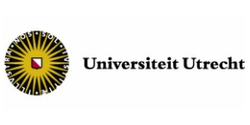PhD Position on Debris Flow – Vegetation Interactions
Updated: 06 Dec 2024
Join us in this fully-funded PhD project and investigate interactions between debris flows and vegetation! We are looking for two PhD candidates.
Your job
Debris flows are fast-moving landslides that can devastate people and property. In many regions they interact strongly with vegetation, but how this reduces their hazardous impact is surprisingly poorly understood. This critically limits the design of protection forests, as well as anticipation of effects of climate change, wildfires, and deforestation on debris-flow hazards. We currently lack tools to systematically and quantitatively study these interactions. Here we will develop new experimental techniques, wherein we mimic vegetation with small-scale 3D-printed trees and live seedlings, which design will be based on field data. Experiments will be set up in the debris-flow lab in the Earth Simulation Laboratory of Utrecht University. Outcomes of the project will be used to design and promote sustainable mitigation of debris-flow hazards through the smart use of vegetation, for example through guidelines on the optimal design of protection forests.
You will help design and perform the novel laboratory experiments and collect and analyse field data for comparison. We work closely together as a team, including international collaborators.
To support academic and personal development, PhD candidates follow courses and assist in teaching Earth Sciences at Bachelor's and Master's level. Together these activities amount to twenty percent of the contracted time.
Requirements:
We look forward to your application if you have the following qualifications:
- a Master's degree in earth sciences, geomorphology, geology, hydrology, civil engineering, or a related field;
- passionate about bio-geomorphology;
- affinity for laboratory experiments and field measurements and the programming needed to process data;
- good at working in a team and enjoy thinking across disciplinary boundaries, and willingness to work in an international and interdisciplinary team;
- excellent English speaking and writing skills.
Salary Benefits:
We offer:
- a position for one year, with an extension to a total of four years upon a successful assessment in the first year, and with the specific intent that it results in a doctorate within this period;
- a working week of 38 hours and a gross monthly salary between €2,872 and €3,670 in the case of full-time employment (salary scale P under the Collective Labour Agreement for Dutch Universities (CAO NU));
- 8% holiday pay and 8.3% year-end bonus;
- a pension scheme, partially paid parental leave and flexible terms of employment based on the CAO NU.
In addition to the terms of employment laid down in the CAO NU, Utrecht University has a number of schemes and facilities of its own for employees. This includes schemes facilitating professional development, leave schemes and schemes for sports and cultural activities, as well as discounts on software and other IT products. We also offer access to additional employee benefits through our Terms of Employment Options Model. In this way, we encourage our employees to continue to invest in their growth. For more information, please visit Working at Utrecht University.
36 - 40 hours per week
Princetonlaan 8a

